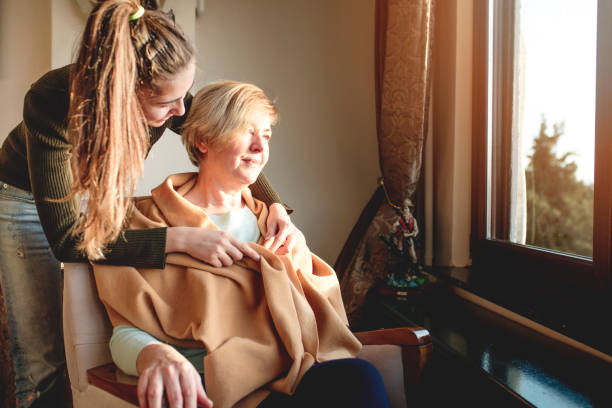As people age, they often encounter significant changes in their physical health, cognitive function, and social environment. In this phase of life, the concept of positive reinforcement can be a powerful tool to enhance the well-being of seniors. It involves encouraging desirable behaviors through rewards, recognition, or other forms of affirmation, promoting a sense of accomplishment, motivation, and emotional stability.
In this blog, we will explore how positive reinforcement can profoundly impact the quality of life for seniors and why it should be part of their care routines.
Contents
Enhancing Emotional Well-Being
Feelings of isolation, depression, or loss of purpose can sometimes accompany aging. Many seniors face retirement, which might leave them feeling less engaged, especially if they no longer have daily routines that give them a sense of fulfillment. Positive reinforcement can help alleviate these feelings by focusing on what they do well and acknowledging their contributions, big or small.
For example, a caregiver or family member could consistently affirm the senior’s progress in learning a new hobby, staying physically active, or even performing daily tasks independently. This kind of positive feedback creates a sense of purpose and accomplishment, making seniors feel valued and appreciated. Ultimately, this can lead to a better overall emotional state, reducing feelings of anxiety or depression.
Boosting Cognitive Function
The natural cognitive decline that comes with aging can be a significant concern for many seniors. However, introducing positive reinforcement strategies can help seniors stay mentally active and engaged. When seniors are praised or rewarded for solving puzzles, engaging in memory games, or learning new skills, their brains are stimulated, promoting cognitive flexibility and slowing cognitive deterioration.
For instance, a senior who completes a crossword puzzle or finishes a reading task might be rewarded with a small treat or praise from their caregiver. This recognition encourages them to continue participating in mentally stimulating activities. Additionally, it nurtures a growth mindset, reinforcing the belief that it’s never too late to learn or improve cognitive abilities.
Encouraging Physical Activity

Maintaining physical health is crucial as we age; positive reinforcement can motivate seniors to stay active. Regular physical activity helps prevent a range of health issues, from cardiovascular diseases to joint problems, and boosts energy levels. However, keeping seniors motivated to exercise can sometimes be challenging, especially when they feel fatigued or discouraged by physical limitations.
Positive reinforcement becomes a game-changer here. Celebrating small milestones, such as completing a daily walk, participating in group exercise sessions, or achieving personal fitness goals, can keep seniors motivated. A caregiver might say, “You’re doing great! That extra lap today is fantastic,” or reward them with a relaxing activity they enjoy afterward. This recognition fosters a positive attitude toward exercise, making it a more rewarding and enjoyable part of their routine.
Fostering Social Connections
As seniors age, their social circles may shrink due to the loss of friends, relocation, or retirement, potentially leading to loneliness and isolation. Positive reinforcement can encourage seniors to stay socially connected by celebrating their efforts to engage with others. Whether it’s participating in group activities at a senior center or maintaining regular contact with family and friends, affirming these behaviors helps reinforce the value of social interaction.
For example, when a senior makes an effort to attend a social gathering or participate in a hobby group, acknowledging their efforts with praise or even planning a future fun outing can strengthen their willingness to connect with others. Over time, this can improve their sense of belonging, reduce loneliness, and enhance overall mental and emotional well-being.
Improving Self-Care and Independence
One of the most important aspects of aging is the ability to maintain independence. Seniors often want to continue doing things for themselves, whether it’s cooking, dressing, or managing personal hygiene. Positive reinforcement can significantly encourage self-care behaviors and preserve independence for as long as possible.
Caregivers can use positive reinforcement by acknowledging when a senior successfully performs self-care tasks. For instance, if an elderly individual takes their medication on time or follows through with their daily hygiene routine, caregivers can express praise or provide a reward like a favorite meal or engage in a preferred hobby. This feedback boosts their confidence and creates a positive association with taking care of themselves.
Reinforcing Medication and Health Management
Adhering to medication schedules and managing health conditions can be challenging for some seniors, especially if multiple prescriptions are involved. Positive reinforcement strategies can help ensure that seniors stick to their healthcare routines. Instead of focusing on the negative consequences of missing a dose or avoiding a doctor’s appointment, caregivers and loved ones can reinforce the positive benefits of following through with these tasks.
For instance, offering praise or small rewards for completing medical appointments, taking medication regularly, or adhering to dietary restrictions can increase compliance. Reinforcing positive outcomes, such as improved health or fewer symptoms, can further motivate seniors to stay proactive in managing their health.
Cultivating a Positive Environment
Positive reinforcement works best in a nurturing and supportive environment. Whether in their own homes or senior care facilities, seniors thrive in spaces where they feel appreciated and encouraged. Caregivers, family members, and friends can contribute to this by maintaining an atmosphere filled with patience, understanding, and affirmations.
Small gestures, such as celebrating achievements, showing appreciation for effort, or even simply acknowledging daily contributions, can create a warm, uplifting environment. This, in turn, fosters a more optimistic outlook on life, empowering seniors to continue engaging with their surroundings and the people in their lives.
Wrapping Up
Positive reinforcement is a powerful tool that can significantly improve the quality of life for seniors, enhancing their emotional well-being, cognitive function, physical health, and social interactions. By focusing on affirmations, praise, and rewards, caregivers and family members can create an environment where seniors feel motivated, appreciated, and empowered.
Whether encouraging daily physical activity, self-care, or social engagement, positive reinforcement helps seniors thrive and enjoy a fulfilling, independent life.
The benefits of positive reinforcement are clear, and incorporating it into daily routines can make a lasting difference in the health and happiness of seniors.

